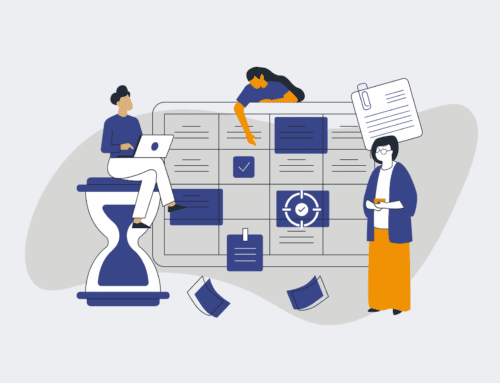What’s Next for AI in HR? Predicting the Future of Resume Parsing Technology
The landscape of talent acquisition is in constant flux, driven by technological innovation and evolving workforce demands. At its core, the resume remains a foundational document, yet the methods for processing it are undergoing a profound transformation. What began as simple keyword matching is rapidly evolving into sophisticated, context-aware AI parsing. For HR leaders and recruitment directors, understanding this evolution isn’t just about keeping pace; it’s about strategically positioning their organizations for superior talent acquisition and operational efficiency.
The Current State: Beyond Basic Keyword Scans
For years, resume parsing primarily involved extracting structured data fields like name, contact information, education, and work history. Basic algorithms would then scan for keywords relevant to a job description. While this offered a significant improvement over purely manual review, it came with inherent limitations. These systems often lacked contextual understanding, struggled with varied resume formats, and could inadvertently perpetuate biases present in the training data or job descriptions themselves. They were, in essence, digital librarians, not insightful analysts. The result was often a high volume of irrelevant candidates, missed opportunities with promising individuals, and a persistent burden of low-value, repetitive administrative tasks for recruiting teams.
The Impending Shift: Semantic Understanding and Predictive Intelligence
The next wave of AI in resume parsing is set to move far beyond these foundational capabilities. We are on the cusp of truly intelligent systems that can understand the *meaning* behind the words, the *implications* of experiences, and the *potential* of a candidate. This evolution will be characterized by several key advancements:
Semantic & Contextual Understanding
Future AI parsers will leverage natural language processing (NLP) to grasp the semantic relationships within a resume. Instead of just identifying “project manager,” they will understand the *scope* of projects managed, the *impact* delivered, and the *technologies* utilized. This means distinguishing between someone who merely listed a skill versus someone who demonstrably applied it in complex scenarios. This deeper understanding will allow for more precise matching, uncovering highly relevant candidates who might have been overlooked by less sophisticated keyword-driven systems.
Skills-Based Matching Over Job Titles
The traditional reliance on job titles is increasingly outdated in a rapidly evolving job market. Future AI will prioritize skills, competencies, and capabilities, rather than static titles. This shift enables organizations to identify transferable skills, unlock diverse talent pools, and facilitate internal mobility. For instance, an AI might recognize that a “Community Manager” possesses strong project coordination, communication, and strategic planning skills directly applicable to a “Marketing Specialist” role, even if the titles don’t perfectly align. This offers a more agile and future-proof approach to talent identification.
Bias Mitigation by Design
Addressing inherent biases in recruiting is a critical imperative. Advanced AI parsers are being developed with explicit bias detection and mitigation capabilities. These systems can analyze resumes for patterns that might lead to unfair exclusion based on demographic proxies, prompting recruiters to focus solely on qualifications and merit. While AI is not a silver bullet for bias, intelligently designed algorithms can significantly reduce human-induced predispositions, fostering more equitable hiring practices.
Dynamic Candidate Profiles and Continuous Learning
Imagine a resume parser that doesn’t just process a document once, but actively builds and maintains a dynamic profile of a candidate, enriched over time with new experiences, certifications, and skills learned. Future systems will continually learn from market trends, successful hires, and evolving role requirements, adapting their understanding of what constitutes an ideal candidate. This transforms the static resume into an always-on, evolving talent intelligence asset.
Strategic Integration: The Key to Unlocking AI’s Full Potential
The power of these advanced AI parsing technologies isn’t realized in isolation. For HR leaders, the true game-changer lies in their seamless integration into existing HR tech stacks—Applicant Tracking Systems (ATS), CRM platforms, and Human Resources Information Systems (HRIS). This is where strategic automation becomes indispensable. Solutions like those offered by 4Spot Consulting, leveraging platforms such as Make.com, enable these intelligent parsing tools to communicate effortlessly with other critical systems.
By implementing an OpsMesh strategy, organizations can automate the entire candidate journey, from initial resume submission and AI-powered parsing to automated candidate outreach, interview scheduling, and data synchronization. This not only dramatically reduces manual data entry and human error but also frees up high-value HR professionals and recruiters to focus on strategic initiatives, candidate engagement, and fostering an exceptional experience. We’ve seen firsthand how this approach, starting with an OpsMap diagnostic, can lead to substantial time savings—like helping an HR tech client save over 150 hours per month by automating their resume intake and parsing process, enriching data with AI, and syncing it directly to their CRM.
Navigating the Future: Ethical Considerations and Human Augmentation
As AI in resume parsing becomes more sophisticated, so too must our approach to its implementation. Ethical considerations surrounding data privacy, algorithmic transparency, and potential for new forms of bias will remain paramount. The future isn’t about AI replacing human judgment, but augmenting it. It’s about empowering HR professionals with superior insights, allowing them to make more informed, objective decisions, and dedicate their expertise to the nuanced human elements of talent acquisition.
The trajectory for AI in HR is clear: smarter, more contextual, and more integrated. Organizations that strategically embrace these advancements, focusing on both technological capability and ethical governance, will gain a significant competitive edge in attracting, identifying, and retaining top talent. The future of resume parsing is not just about finding candidates faster; it’s about finding the *right* candidates more intelligently and equitably, ensuring that every talent decision is a strategic one.
If you would like to read more, we recommend this article: The Strategic Imperative of AI in Modern HR and Recruiting: Navigating the Future of Talent Acquisition and Management









